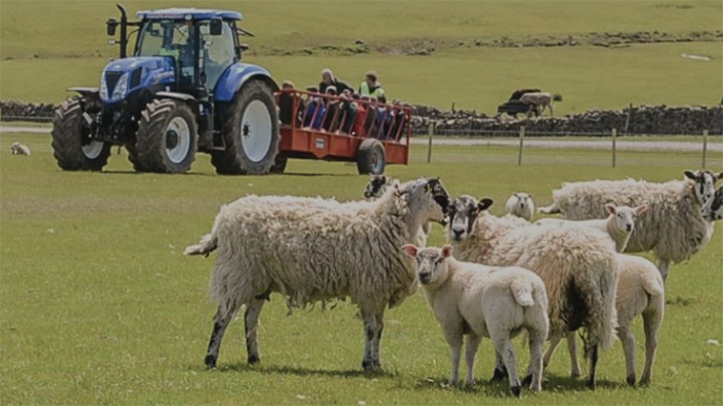The Sustainable Control of Parasites in Sheep (SCOPS) Group advocates a targeted approach to parasite control in ewes, emphasising the importance of assessing ewe condition and utilising faecal egg counts (FECs) to determine the need for worming ewes pre-lambing.
Healthy adult ewes typically develop strong immunity to most roundworms by the time they are 12-18 months old, provided they are in good body condition and well-fed. This immunity helps them manage their parasite burden effectively, without the need for frequent treatments. Maintaining good nutrition and monitoring their condition is key to sustaining this immunity.
Speaking on behalf of SCOPS, independent sheep consultant Dr Nerys Wright said: “As a result of the stress of late pregnancy, the ewe’s immune system can wane, allowing adult worms in her gut to start producing a lot more eggs.”
This is called the ‘spring rise’ while these worms are not harming the ewe, it does mean that if they are out on grass, the eggs passed out in the dung and are a source of contamination for their lambs later in the season. This can pose a significant threat to young lambs, before they have developed any immunity to roundworms.
“The good news is that not all ewes are significantly affected and we can target treatments specifically at ewes shedding the highest number of eggs, so farmers can manage this risk without treating all their ewes or negatively impacting lamb performance” said Dr Wright.
“Those ewes in lower body condition and in particular those that have lost condition in the run up to lambing, are the most likely to shed large numbers of worm eggs in their faeces.
Dr Wright said the most important reason for not using anthelmintics unnecessarily in ewes is to protect flocks from resistance in the long term, prolonging the efficacy of the products available, to ensure they are still available and effective in future years.
“Of course there is also a cost element to worming adult ewes and this is also a way of controlling costs without a detrimental impact on flock performance,’’ Dr Wright said.
“We also know the duration of the spring rise varies by farm, by year and is influenced by when ewe body condition score (BCS) loss occurs. Monitoring ewe body condition score is a practical management tool that can significantly reduce how many doses of wormer are administered to ewes this lambing season.”
Taking regular FEC samples of ewes in the weeks leading up to lambing can detect if or when the egg output begins to rise. You can utilise this information to decide whether to treat or not and if treatment is required, the treatment is timed more accurately which will also determine which product to use.
Dr Wright recommends producers speak to their vet, SQP or animal health advisor about this topic and visit the SCOPS website for more information about using FECs and body condition score as a measure at this time of year.


